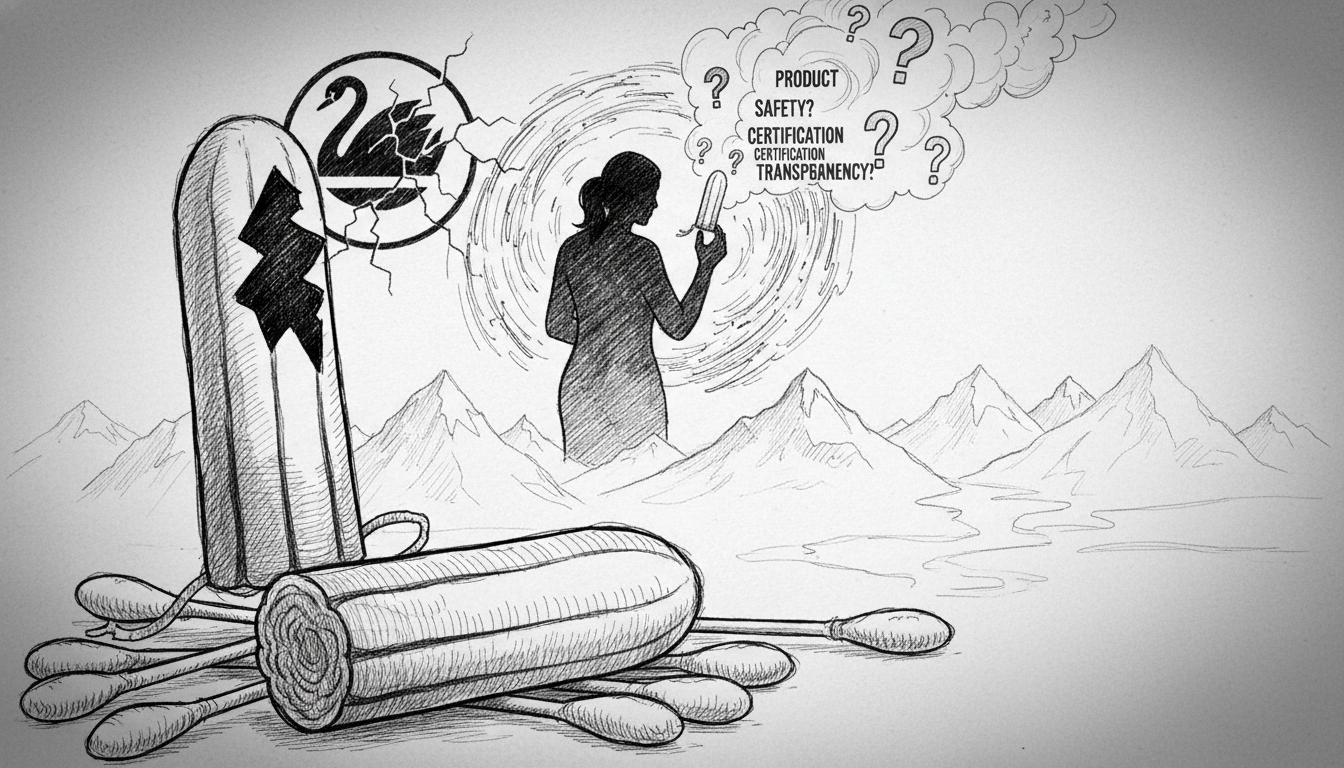Norwegian women are expressing disappointment after testing revealed small amounts of lead in tampons carrying the official Nordic environmental certification. The discovery has raised questions about product transparency and safety standards in intimate hygiene products.
Laboratory analysis of 146 Norwegian tampon products detected trace amounts of the toxic heavy metal across all tested items. The findings proved particularly concerning for products bearing the Nordic Swan environmental label, which markets itself as having strict requirements against toxic substances.
A chemist involved in the testing expressed surprise at the results. "With Swan certification, consumers reasonably expect zero lead in the product," he stated. The certified First Price tampons showed some of the highest lead content measurements in the comprehensive product review.
Environmental authorities had previously recommended consumers choose Swan-labeled products specifically because of their stringent chemical requirements. A section leader from Norway's Environment Directorate had publicly endorsed the certified tampons just days before the test results became public.
Officials from the certification scheme defended their standards while acknowledging the presence of lead. A toxicologist with the Swan labeling program explained that lead contamination occurs naturally during raw material cultivation. "Pollution from lead can occur because lead exists everywhere and can enter through raw materials," she wrote in response to inquiries.
The certification organization describes the detected amounts as "minute" and references Norway's public health institute, which states women should not be concerned about the findings. They emphasize having established strict maximum limits for lead as contamination and point out that tampons contain less lead than permitted in many food products.
Transparency concerns emerged when the certification program declined to provide documentation about the complete lifecycle of the tested tampons. They cited competitive concerns and potential damage to the certification scheme's credibility as reasons for withholding detailed information.
This lack of disclosure troubled a professor and longtime lead researcher. "If the Swan label isn't willing to provide insight into this, it appears secretive and at worst suspicious," he commented. "It certainly isn't verifiable by independent parties."
The certification program maintains they follow the same maximum lead limits for tampons as other labeling schemes, the European Union, and portions of the tampon industry. They recently updated their requirements, now mandating testing of finished tampons rather than just raw materials.
Norwegian authorities currently impose no specific regulations controlling lead content in tampons. Manufacturers bear sole responsibility for product safety in this unregulated sector. The certification program has since updated its website to express concern about this regulatory gap.
Experts note that research remains limited on how the body absorbs lead through vaginal exposure compared to ingestion. Women likely receive more lead exposure from food and drinking water daily than from tampon use, but the specific effects of vaginal absorption require further study.
The situation highlights broader challenges in consumer product safety and environmental certification. When trusted eco-labels face scrutiny, consumers must navigate complex questions about what certifications truly guarantee and how much transparency they should provide about product composition and manufacturing processes.
